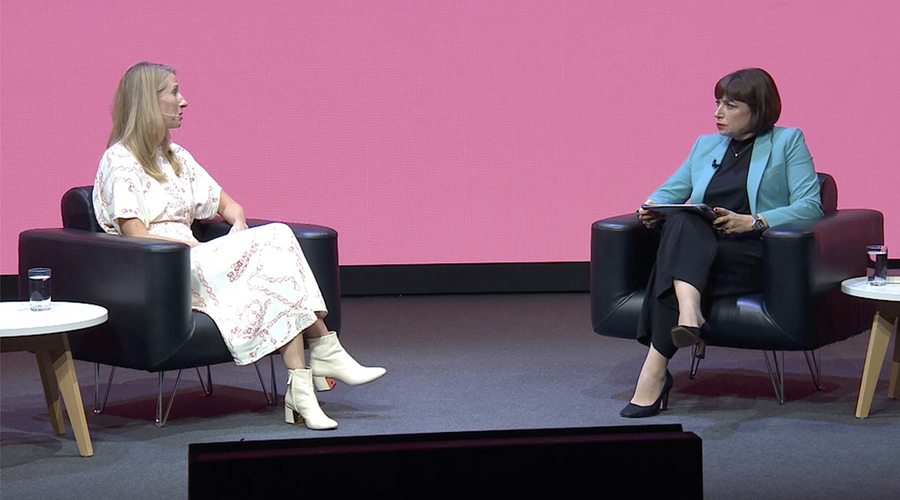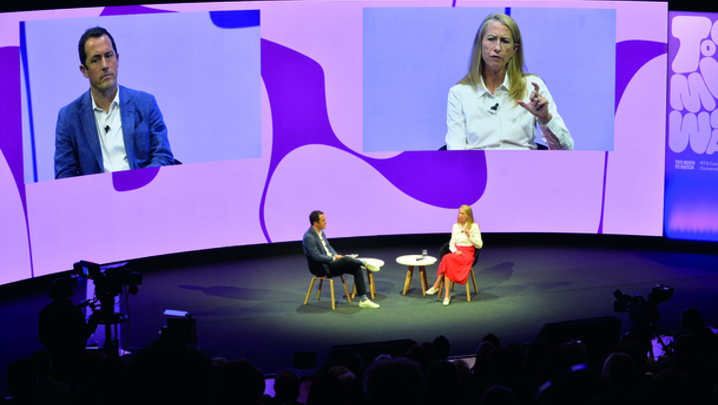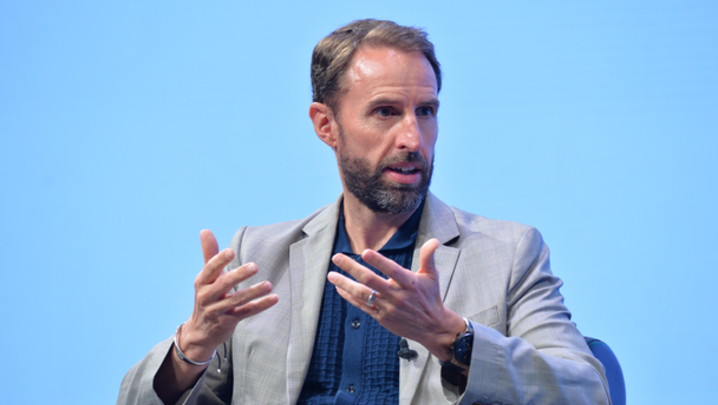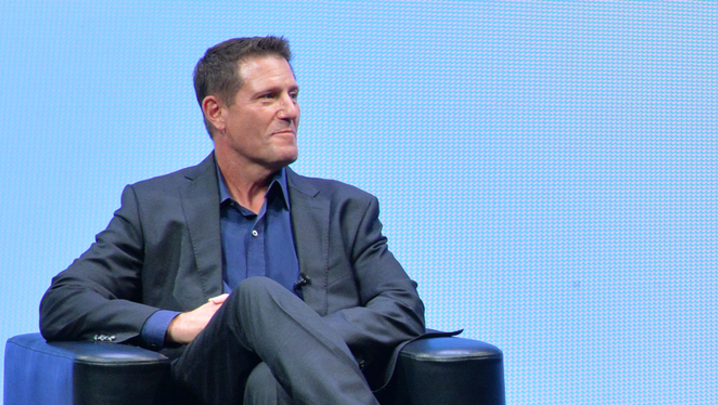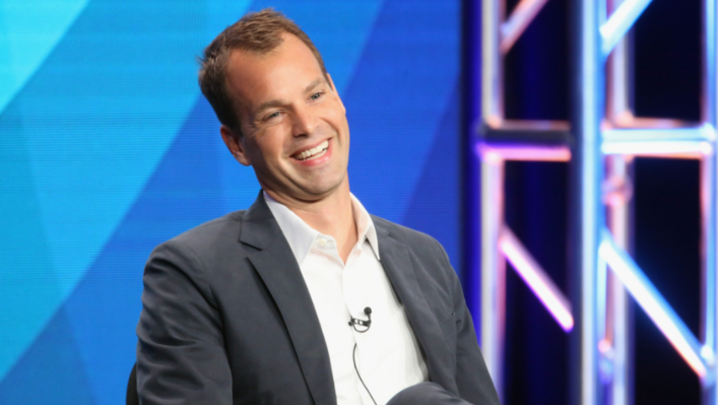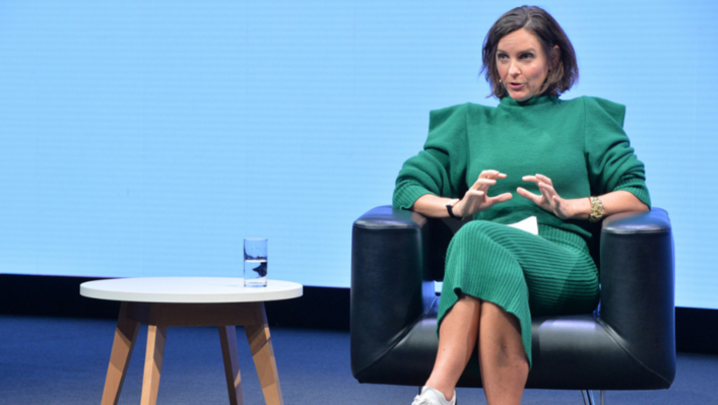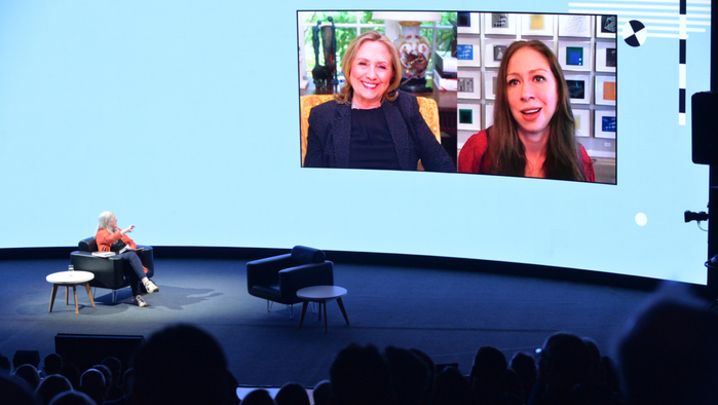Sky’s CEO explains why partnerships and aggregation are key to maintaining a strong subscriber offering
After 30 years of investment as the centrepiece of Rupert Murdoch’s media empire, it was no wonder there was a battle of suitably high drama when Sky Group went on sale in 2018 – nor that it went to Comcast for the tidy sum of $39bn (£28.5bn).
Three years on, former Comcast executive Dana Strong is Sky’s new CEO, replacing Jeremy Darroch after his 13-year tenure.
In her first public interview since taking up the role in January, she outlined her priorities for the years ahead: continuing with product and service innovations; more aggregation to “make it much easier for customers to actually find content regardless of the source”; and, critically, investing in original content.
This year, Sky is doubling the number of original films and shows it airs to 125, “and we’re growing that investment so that Sky will be one of the largest investors and producers of British content in the country”, said Strong.
The drive for more original output would also bolster SkyShowtime, the platform that will package content from Comcast and ViacomCBS portfolio brands, which include NBCUniversal, Universal Pictures, Peacock, Paramount+ Originals, Showtime, Paramount Pictures and Nickelodeon. “It is allowing us to expand to more than 20 countries [across Europe] that we haven’t been to previously. The brands work well together, the content works well together. It’s a great indication of working as a partner in order to do better for your customers.”
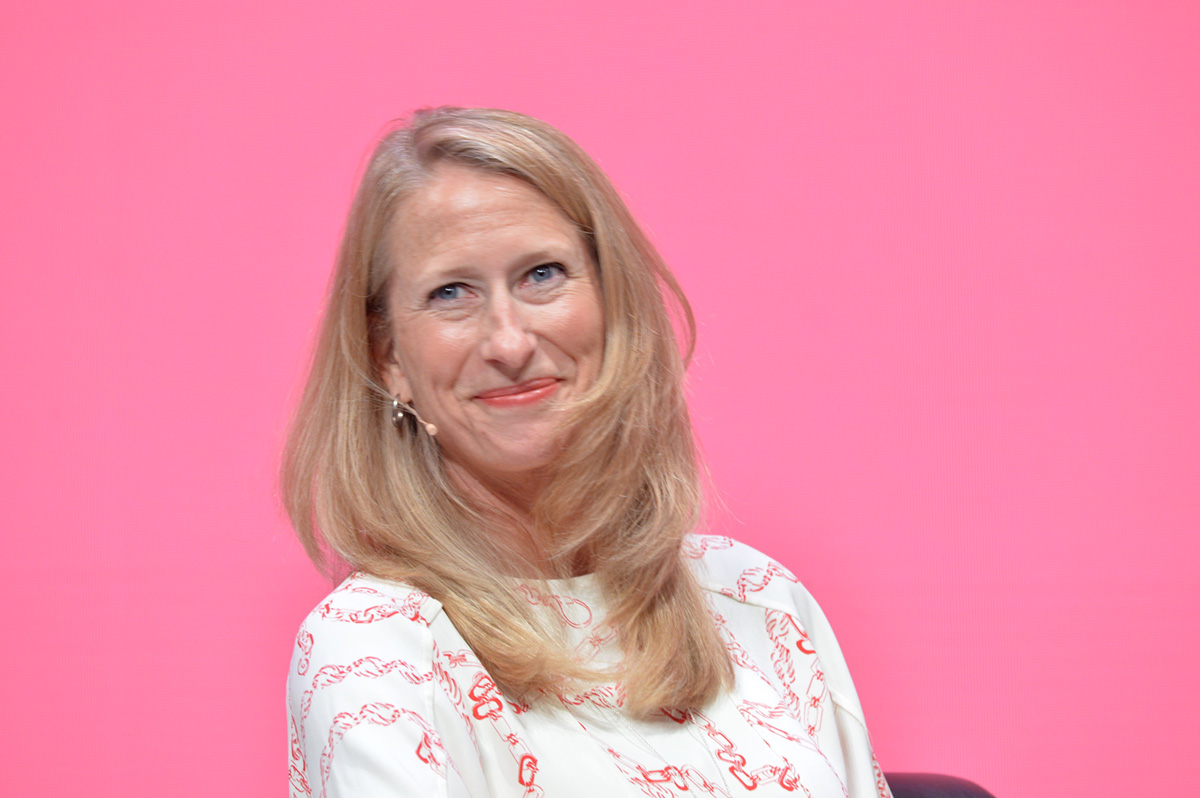
It is also an example of how Comcast’s global scale and deep pockets are helping Sky move forward. The US conglomerate defines itself as “shaping the future at the intersection of media and technology”, a mission statement that demonstrates another benefit to Sky, said Strong: “What we’ve been able to do is partner with their thousands of software engineers and share product innovation across the two entities.
“One example would be the voice platform, where customers don’t have to use the remote control – you can just speak into it. Voice requires billions of utterances to train it – it’s one of those technologies that, the more you use it, the better it gets. So having global platforms for these elements makes the user experience all the better.”
A further boon is that all of Comcast’s companies can draw on data from their collective 57 million customers, allowing early detection of trends, and highlighting differences or similarities across territories. Another major advantage of being part of Comcast is “the making of content across the jurisdictions – being able to attract top talent because of scale, and also in the global distribution. The benefit for us is making a British story and being able to distribute that to the US with our colleagues across the pond.”
Session chair Beth Rigby of Sky News drew attention to a looming threat to this rosy picture, noting that, for 16- to 34-year-olds, only 38% of their viewing was of traditional broadcasters. In order to stay relevant, Strong said that British producers had to lean on their core strengths: storytelling and a robust infrastructure.
Echoing a consensus that ran throughout the RTS Convention, she said: “There’s something that the world writ large enjoys about watching British storytelling. If we remember that this is one of our core strengths, and continue to make unique British content, I think that the sector is going to continue to flourish.”
The UK’s film and TV infrastructure helps the country to position itself as a global leader, and has been boosted by the expansion of Shepperton, Sunset Studios’ planned £700m complex in Broxbourne, Hertfordshire, “and, of course, we’re investing hundreds of millions into Elstree”, added Strong. “A lot of that is down to the fact that the talent here is very robust. Some of the best indies are here – Endemol, All3Media, Fremantle. It’s a very healthy market, which is why we at Comcast see this as an imperative market in which to invest in creative content.”
Strong’s 20-year media career spans a broad range of countries, with key executive roles at Austar United Communications in Australia, UPC Ireland (now Virgin Media Ireland) and Liberty Global across Europe. Following a period in the UK as President and COO of Virgin Media, she returned to the US for three years as the President of consumer services for Comcast Cable, which primed her nicely for her current role.
‘Companies that don’t adapt and embrace diversity will not succeed’
“I felt like I was in the epicentre of the change that was happening in our sector,” she said. “What I came away with is that our industry is incredibly resilient and adaptable. Despite all of the rumours about our demise and what you read in the press, all of the big brands are still standing and growing – viewership is going up. So it has given me a lot of confidence that we’re going to continue as a leader and as a creative force that will go on evolving to where the consumer takes us.”
Strong is one of only seven female CEOs in the UK at FTSE 100 level. “It doesn’t surprise me but it is disappointing,” she told the audience. “If you think about the positives in our industry, we have a lot of female leadership right now, with Carolyn McCall running ITV, Alex Mahon running Channel 4, my appointment, Jane Turton at All3Media and a lot of CFOs of the female gender. We are making progress but there’s so much more progress we have to make.
“I come back to my fundamental belief, which is that companies that don’t adapt and embrace diversity are not going to succeed. Those of us that are embracing this concept and making real change, I think we’re going to flourish and I think the others will struggle.”
In relation to this year’s discussions about the TV industry’s failure to include disabled people, Strong acknowledged that “there is no doubt that we can all do better – we have to challenge ourselves to do better. Creating an environment and culture where multiple contexts and diverse backgrounds can be heard is one of my core jobs as a leader.”
As well as setting a diversity target of having 20% black and ethnic-minority employees by 2025, Sky also participates in The Valuable 500, a grouping of blue-chip companies with a commitment to disability inclusivity.
As part of this, Sky was selected (as was the BBC) as one of 13 “iconic leaders” to co-fund, co-build and co-test programmes and solutions “partially because of the work we’ve done in making our platform easy to use in order to help that community”, said Strong. “As technology developers, an important focus area and responsibility is to actually make sure we’re thinking about development with diversity in mind. So there’s a lot of progress to be made ahead of us, but I’m glad we’re talking about it.”
Session Three: ‘International keynote: Dana Strong’. Sky CEO Dana Strong was in conversation with Sky News political editor Beth Rigby. The session was produced by Sue Robertson and Martin Stott. Report by Shilpa Ganatra.

